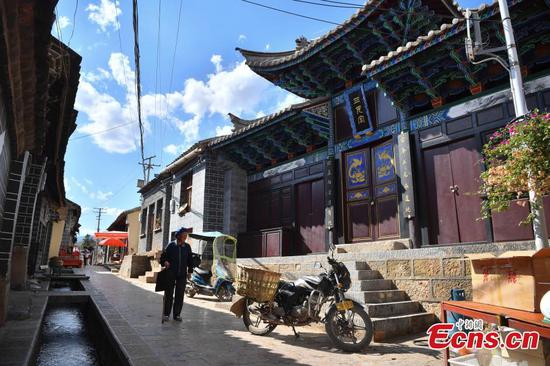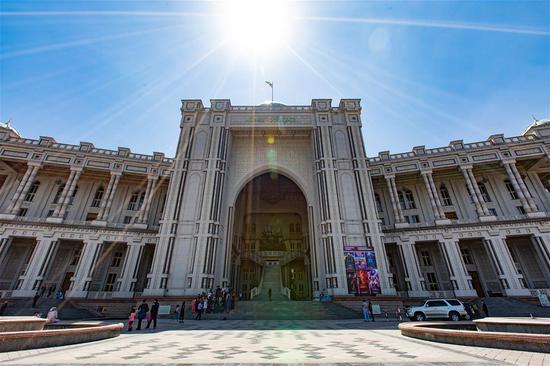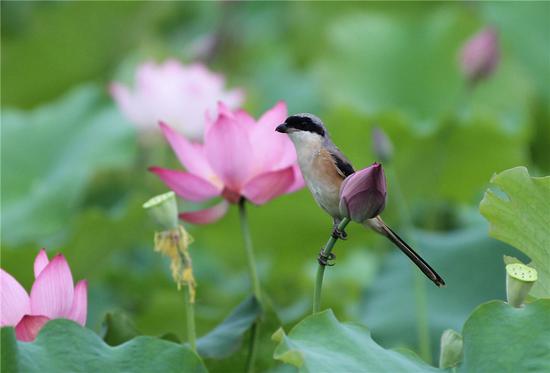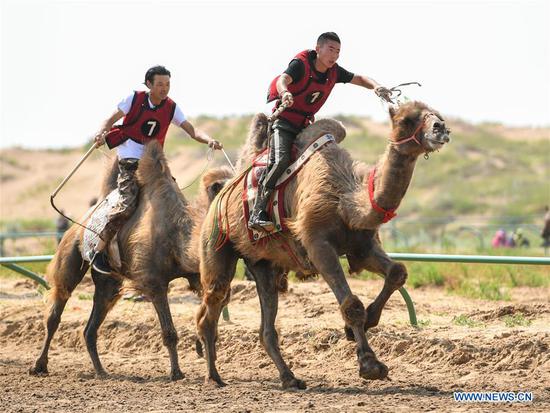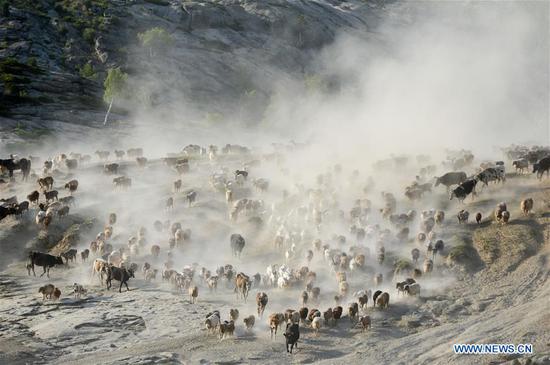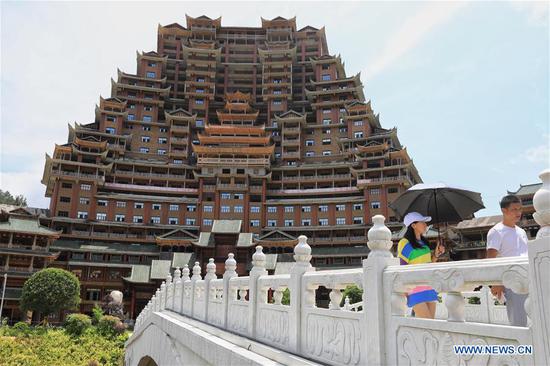
A young monkey sits on a tree branch in the reserve. Zhang Dongqiang / Xinhua
National effort
The monkeys live in the mountainous forests of Yunnan and the neighboring Tibet autonomous region, with most of them found in the Baima Snow Mountain Nature Reserve, which was established in 1983 and upgraded to a national-level nature reserve in 1986.
It was the first area targeted for scientific research into the species.
Local governments, nature reserve departments and research institutes have been trying to raise awareness of the ecological importance of the monkeys among the locals, and mobilizing them to engage in protection work.
"Everybody in the community knows the rivers, forests and vegetation here better than any outsider. Though they once made a living by stripping resources from their surrounding environment, nobody really wants to see their homes destroyed," Zhong said.
"We have worked with the community to instruct the villagers in preservation and the consequences of poaching, helping them turn from hunters to protectors."
China has strengthened ecological protection in recent years, incorporating it into the blueprint for national development with the goal of building a "Beautiful China" by 2035.
Nationwide, hundreds of thousands of villagers like Yu now work as rangers to protect the environment.
The government will also create and implement a plan for the ecological restoration of natural areas, and establish and improve mechanisms for the restoration and comprehensive management of mountains, forests, lakes and grasslands.
Technological progress
The Yunnan snub-nosed monkeys living around Xiangguqing village are polygamous and usually form seven family groups, according to Huang Zhipang, an associate professor at the Institute of Eastern-Himalaya Biodiversity Research at Dali University in Yunnan.
The staff members at the reserve spread the monkeys' natural raw food, including lichen, peanuts, corn, dried apples and pumpkin seeds, around the forest and closely monitor their health.
The rangers collect the monkeys' droppings once a month. "If more than five types of parasite eggs are found in the droppings, the monkeys will be treated with medicine added into fruit or carrots," Zhong said.
The reserve department trains rangers to promote the importance of protecting rare species and to initiate monitoring and field surveys, while scientists identify DNA through the analysis of feces.
The reserve has produced a handbook and field survey table with 17 patrol routes and 56 monitoring sites around the village.
Long Yongcheng, chief scientist with the Society of Entrepreneurs and Ecology Southwest Project Center, said infrared cameras have been used to monitor the monkeys. He hopes to use more advanced field tracking and monitoring technologies.
Xiao Wen, a professor at Dali University, said the snub-nosed monkey is a flagship species because its movement through the dense forest canopy can expose the floor to sunlight, heat and water, benefiting the whole forest.
Xiao's research team used a 3D-map-based interview survey method to monitor the terrain, vegetation and water conditions of the monkeys' habitat.
Huang said the researchers set up three observation stations in the reserve to monitor the climate, including air and soil temperatures, and rainfall, as well as biological groups of plants, aquatic organisms, insects, amphibians, reptiles, birds and other animals.
They plan to build a field monitoring network for biodiversity protection in other regions.



















